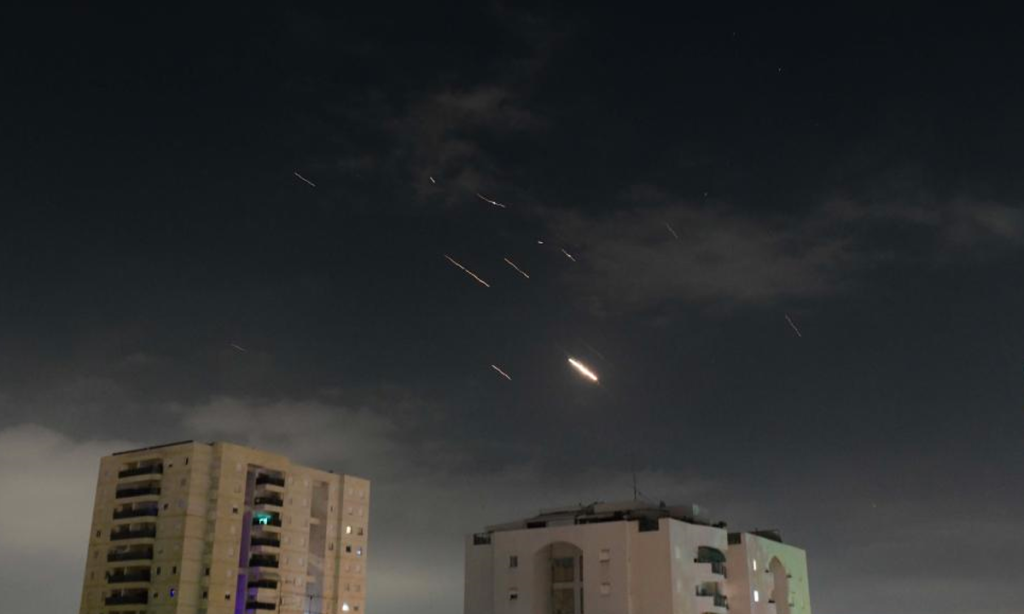China engages with Iran, Israel and Saudi Arabia on Iran-Israel tensions

Following Iran's retaliatory attacks against Israel for bombing Iranian embassy buildings, the Chinese Foreign Minister Wang Yi initiated intensive communications with regional parties to prevent further escalation in the Middle East, calling to avoid the situation from further escalating.
Wang Yi, also a member of the Political Bureau of the Communist Party of China (CPC) Central Committee, and Iranian Foreign Minister Hossein Amir-Abdollahian held phone talks on Monday at the latter's request.
Amir-Abdollahian briefed Wang on Iran's position on the attack on the Iranian embassy in Syria, stating that the UN Security Council (UNSC) had not responded appropriately, and Iran had the right to defend its sovereignty.
The Iranian minister mentioned that the regional situation is very sensitive, and Iran intends to remain restrained and does not wish to escalate the situation further. Iran advocates for an immediate ceasefire in Gaza and supports China's efforts to promote a ceasefire, restore regional peace, and strengthen cooperation among regional countries. Iran is eager to work with China to further develop Iran-China cooperation, Amir-Abdollahian said.
Wang expressed China's strong condemnation and firm opposition to the attack on the Iranian embassy in Syria, stating that such an incident is a serious violation of international law and unacceptable.
China noted that Iran's response was limited and constituted an exercise of self-defense. China appreciates Iran's emphasis on not targeting regional countries or neighboring states and its continued policy of good neighborliness and friendship. China trusts that Iran will manage the situation well, maintaining its sovereignty and dignity while avoiding further instability, Wang said.
The current situation is a spillover effect of the escalation in Gaza, the Chinese foreign minister said. The immediate priority is to implement UNSC Resolution 2728 to achieve a ceasefire in Gaza, protect civilians, and prevent further humanitarian disasters.
China is willing to keep in communication with Iran and jointly work toward a comprehensive, just, and lasting resolution to the Palestinian issue. As comprehensive strategic partners, China is ready to steadily advance practical cooperation in various fields with Iran and foster greater development in China-Iran relations, Wang said.
On the same day, Wang also talked with Saudi Foreign Minister Prince Faisal bin Farhan Al Saud on the regional situation in the Middle East.
China firmly opposes the attack on the Iranian embassy in Syria, a serious violation of international law, and noted Iran's assertion that its retaliation did not target any neighboring countries and that it wished to continue its policy of good neighborliness and friendship, Wang told Faisal.
The current situation faces a choice between deterioration and normalization. China appreciates Saudi Arabia's emphasis on resolving issues through diplomatic means and is willing to work together with Saudi Arabia to prevent further escalation of confrontation, Wang said.
Wang also pointed out that the urgent priority is to strictly implement UNSC Resolution 2728, to immediately achieve an unconditional and lasting ceasefire, to protect civilians effectively, and to ensure humanitarian aid.
The failure of the Palestinian people to achieve their legitimate national rights has been the longest-standing injustice of our time, the root of the Israel-Palestine issue, and the core of the Middle East problem. The direction for solving this issue is to quickly implement the "two-state solution," establish an independent Palestinian state, restore the legitimate national rights of the Palestinian people, and achieve peaceful coexistence between Israel and Palestine, Wang said.
On April 8, the UNSC president referred the Palestinian Authority's application for full membership to the committee on new members. The council is expected to decide at an April 18 ministerial meeting on the Middle East, according to Reuters.
Faisal expressed that Saudi Arabia and China have highly consistent positions on the current Middle Eastern situation. Both countries advocate resolving differences through dialogue and are committed to maintaining peace and stability in the Middle East.
Also on Monday, the Chinese government’s special envoy Zhai Jun on the Middle East issue met with Israeli Ambassador to China Irit Ben-Abba Vitale at the latter's request.
China is deeply concerned about the current escalation of regional tensions, and conflicts and bloodshed serve the interests of no one. All parties concerned should exercise maximum calm and restraint, Zhai said.
The Chinese diplomat emphasized the urgent need for an immediate ceasefire in the Gaza Strip, ensuring humanitarian aid, the release of all detained personnel, and a political settlement of the Palestinian issue based on the two-state solution to ensure peaceful coexistence between Israel and Palestine.